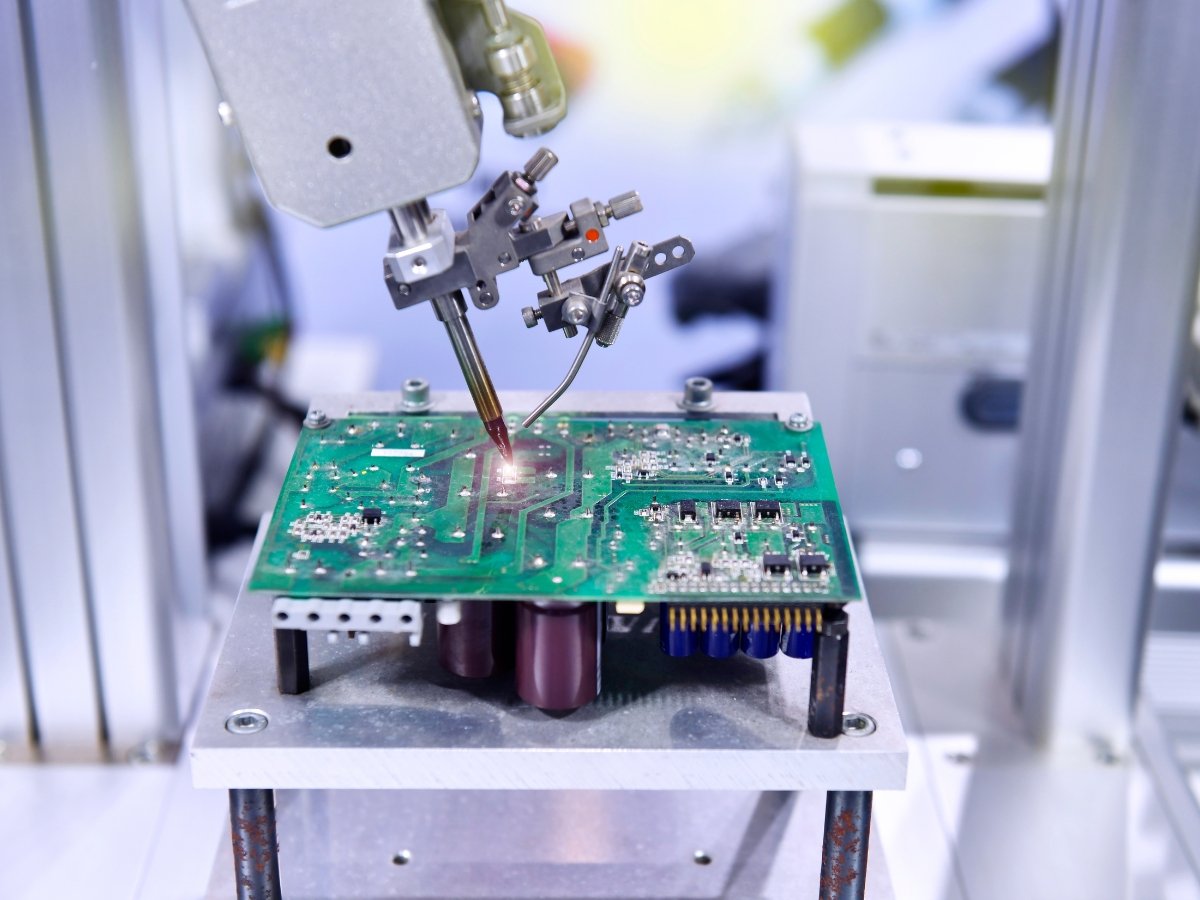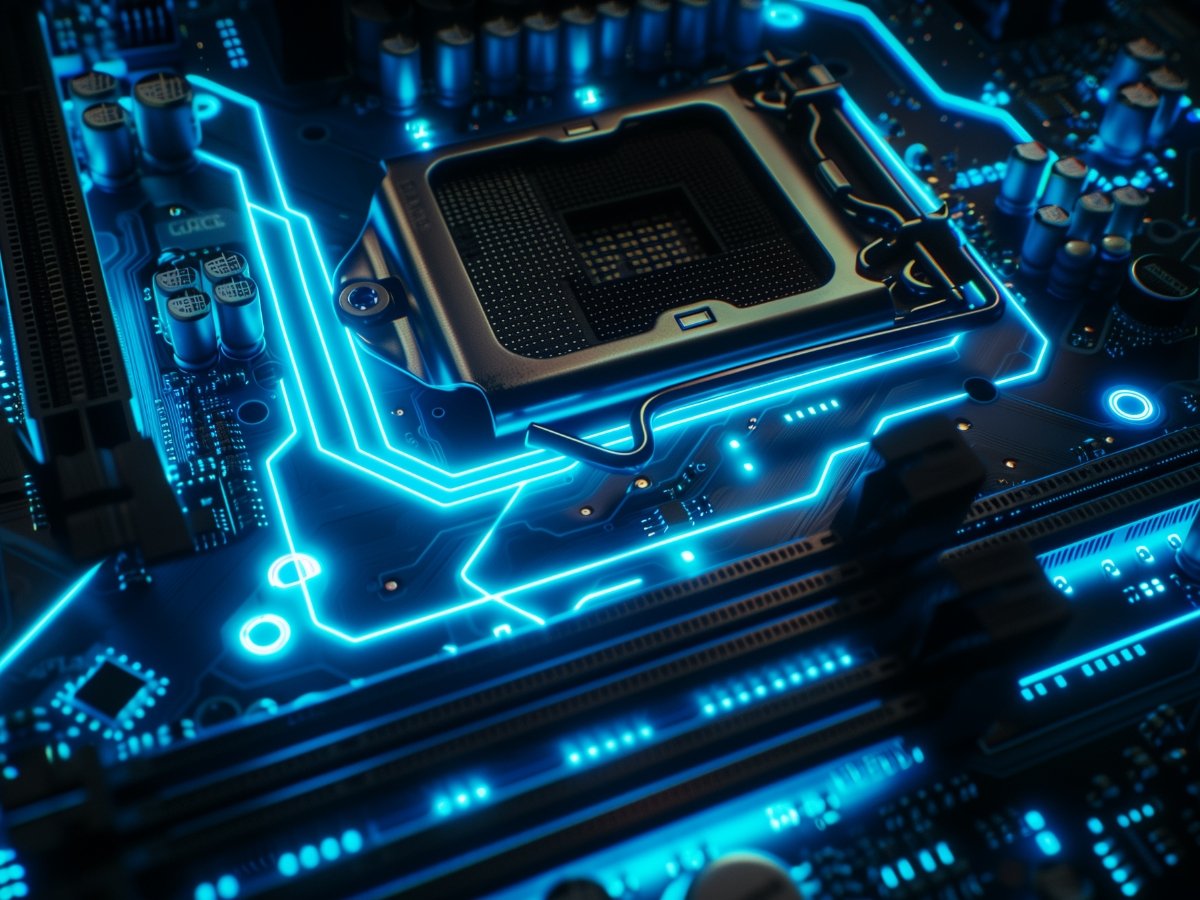If you’re looking to build a career in this dynamic field, now is the perfect time to get involved. In this blog, we will explore the future of semiconductor technology and the career opportunities available for aspiring professionals.
The Future of Semiconductor Technology: Key Trends
The semiconductor industry is witnessing unprecedented growth, driven by technological advancements and the increasing reliance on smart devices. Here are some of the major trends shaping its future:
1.AI-Powered Semiconductor Chips
Artificial Intelligence (AI) is driving the development of highly efficient semiconductor chips that can process vast amounts of data in real time. AI accelerators like GPUs, TPUs and neuromorphic chips are revolutionizing machine learning applications, making computing faster and more energy-efficient.
Stat: The global AI chip market is expected to reach $372 billion by 2032.
2. The Rise of 3D and Advanced Packaging Technologies
Traditional chip designs are evolving to 3D architectures, enabling better performance, lower power consumption and enhanced scalability. Advanced packaging technologies, such as chiplets and heterogeneous integration, are reshaping the way semiconductors are built, allowing more functionality in smaller sizes.
3. Quantum Computing and Semiconductor Innovation
Quantum computing is gaining traction, with companies like IBM, Google and Intel making significant strides in quantum processors. Semiconductors play a vital role in building stable and scalable quantum computing architectures, paving the way for groundbreaking applications in cryptography, materials science and optimization problems.
4. Sustainable and Eco-Friendly Manufacturing
As semiconductor manufacturing is resource-intensive, companies are focusing on sustainability initiatives to reduce carbon footprints. Energy-efficient fabrication processes, water recycling techniques and green materials are becoming priorities for chipmakers.
Fact: TSMC and Intel are investing in renewable energy sources to achieve carbon neutrality by 2050.
5. Supply Chain Resilience and Geopolitical Shifts
The global chip shortage has highlighted the need for a resilient semiconductor supply chain. Countries like the US, India and the EU are investing heavily in domestic chip manufacturing to reduce reliance on overseas production. Initiatives like the CHIPS Act in the US and India’s Semiconductor Mission are boosting local production capabilities.
Career Opportunities in the Semiconductor Industry
With the industry’s rapid expansion, there is a growing demand for skilled professionals. Here are some of the top career paths in semiconductor technology:
1. VLSI Design Engineer
VLSI (Very Large Scale Integration) engineers design and develop complex integrated circuits used in microprocessors, GPUs and memory chips. This role requires expertise in hardware description languages like Verilog and VHDL.
Skills Needed: Circuit Design, RTL Coding, Logic Simulation, FPGA Prototyping
2. Semiconductor Process Engineer
Process engineers focus on improving semiconductor fabrication techniques, ensuring high-quality chip production. They work closely with manufacturing teams to optimize wafer processing, lithography and material deposition.
Skills Needed: Semiconductor Physics, Nanotechnology, Cleanroom Processes
3. Embedded Systems Engineer
Embedded systems professionals design firmware and software for semiconductor-based hardware, enabling IoT devices, automotive systems and smart appliances.
Skills Needed: C/C++ Programming, Real-Time Operating Systems (RTOS), Microcontrollers
4. Quantum Computing Researcher
As quantum computing advances, researchers in this field work on developing stable qubits and scalable quantum circuits using semiconductor materials.
Skills Needed: Quantum Mechanics, Cryogenics, Material Science
5. AI and Machine Learning Engineer for Semiconductors
With AI-driven chip design gaining momentum, engineers in this domain develop algorithms to enhance chip performance and automate design processes.
Skills Needed: Python, Deep Learning, Neural Networks, Semiconductor Optimization
How to Get Started in the Semiconductor Industry
If you’re interested in a semiconductor career, here are the steps to enter the field:
1. Pursue a Relevant Degree or Certification
A degree in Electronics, Electrical Engineering, Computer Science, or VLSI Design is essential. Additionally, certifications in semiconductor design, AI-driven chip development and embedded systems can enhance your expertise.
2. Gain Hands-On Experience Through Internships
Practical exposure is crucial. Look for internships at semiconductor companies like Intel, TSMC, Nvidia and AMD. Many universities also offer research programs in semiconductor technology.
3. Stay Updated with Industry Trends
Follow semiconductor news, attend tech conferences like IEEE ISSCC and SEMICON and engage in online semiconductor communities to stay ahead of emerging trends.
4. Build a Strong Network
Networking with professionals on LinkedIn and joining organizations like IEEE, VLSI Society and SEMI can open up job opportunities and mentorship possibilities.
5. Enroll in Specialized VLSI and Semiconductor Courses
To gain in-depth knowledge, consider enrolling in professional semiconductor courses, such as:
- IIT Bhubaneswar-certified VLSI Course
- Advanced ASIC Design Programs
- Online Semiconductor Training by Nvidia, Intel, or Cadence
Final Thoughts: Be a Part of the Semiconductor Revolution
The semiconductor industry is on an exciting growth trajectory, with groundbreaking advancements shaping the future of technology. Whether you’re an aspiring engineer, researcher, or entrepreneur, now is the perfect time to build a career in this transformative field.
By gaining the right skills, staying updated on industry trends and networking with experts, you can play a significant role in the next wave of semiconductor innovations.



